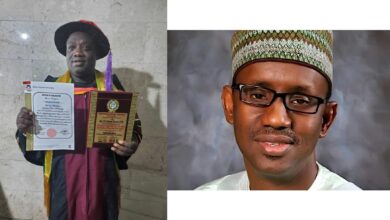
By Wale Adeleke
Nigeria’s population is projected to grow significantly between 2024 and 2037, with an estimated increase of 65 million people. That would make Nigeria the second-largest contributor to global population growth during this period, trailing India (147 million) but surpassing Pakistan (59 million) and the Democratic Republic of Congo (51 million).
However, of the projected 65 million increase in Nigeria’s population over the next 13 years, the Yoruba are likely to contribute the least compared to the other two major ethnic groups.
A 2019 study in the journal Fertility Research and Practice reveals significant disparities in fertility rates among Nigeria’s major ethnic groups, with Yoruba women having the lowest rates. The study shows a total fertility rate of 8.02, 4.91, and 4.43 among Hausa/Fulani, Igbo, and Yoruba women, respectively. Additionally, the proportion of women with five or more children was highest among the Hausa/Fulani (40%), followed by Igbo (21.6%) and Yoruba (17.5%). The decline in fertility rates among the Yoruba is not a recent development; rather, it reflects a trend that has emerged over the past few years.
These findings align with a 2014 study published in the Journal of Ethnic and Cultural Studies, which found that the Yoruba (Nigeria’s South West geopolitical zone) have consistently had the lowest fertility levels.
In a country where population size directly influences political power and resource allocation, the emerging trend of lower fertility rates among Yoruba women could diminish the Yoruba’s political influence, reduce its representation in government, and weaken its voice on issues impacting the South West Region.
To further compound the potential adverse implications for the Yoruba’s political representation and influence, the comparatively lower birth rates of the Yoruba are significant because the South West region—the ancestral home of the Yorubas—is known for its progressive, peaceful, and accommodating nature. This has led to an influx of non-Yoruba migrants who now call the region home.
This demographic shift, combined with lower birth rates among Yorubas, has resulted in a situation where non-Yoruba residents (migrant votes) increasingly swing election outcomes in significant parts of the South West region. The recent outcome of the presidential election in Lagos State is a good example. However, the presidential election results in Lagos State are just a pointer to what to expect at state and local government elections in the near future.
Consequently, elected representatives of the South West region may, at first, but eventually will be determined by non-Yorubas, effectively rendering Yoruba majority votes irrelevant as minority votes become —the so-called swing voters– the decisive factor in elections.
Unlike first-generation citizen politicians (and voters) in other societies, such as the Obamas and Kemi Bardenochis, who “assimilate” into the host community, prioritize the interests of their host community over any other interests, including those of their ancestral nationality, and vote in the interest of the host community during elections, non-Yoruba residents in the South West region merely “integrate” to benefit from the Yoruba’s accommodating and progressive culture, thrive economically, but vote for their ancestral ethnic interests above those of the Yoruba during elections.
Comparing or equating Obama’s election successes in the US with a non-Yoruba representing Yorubas is the height of false equivalence. Without question, Obama as president of the US, would rank American tribal interests over and above the African, Kenyan, and even his father’s Luo tribal interests. How many non-Yoruba Nigerian would rank Yoruba tribal interests over that of his ancestral tribal interests.
Thus, as we contemplate the certainty of the Yoruba population experiencing a decline in political influence due to these factors, it is crucial to consider the economic sphere as well to determine if, and how, a similar decline and eventual loss of influence can be prevented or mitigated.
To sustain its economic advantage in the South West, the Yoruba should prioritize strategic investments in areas such as quality public education, public health, and infrastructure.
These investments will boost the region’s productivity through innovation, enhance its competitiveness, and ensure future economic prosperity. However, the economic benefits from such a strategy would not translate into political influence unless the South West region implements legal measures to preserve land ownership interests primarily for the Yoruba people. This will help maintain the Yoruba economic, as well as political, influence in the region.
Ignoring these issues and taking no action will eventually lead to political marginalization, economic decline, and the displacement of future Yoruba generations in the SW, effectively rendering them tenants in their homeland.




